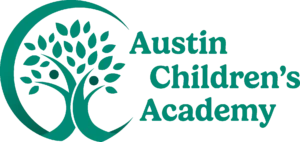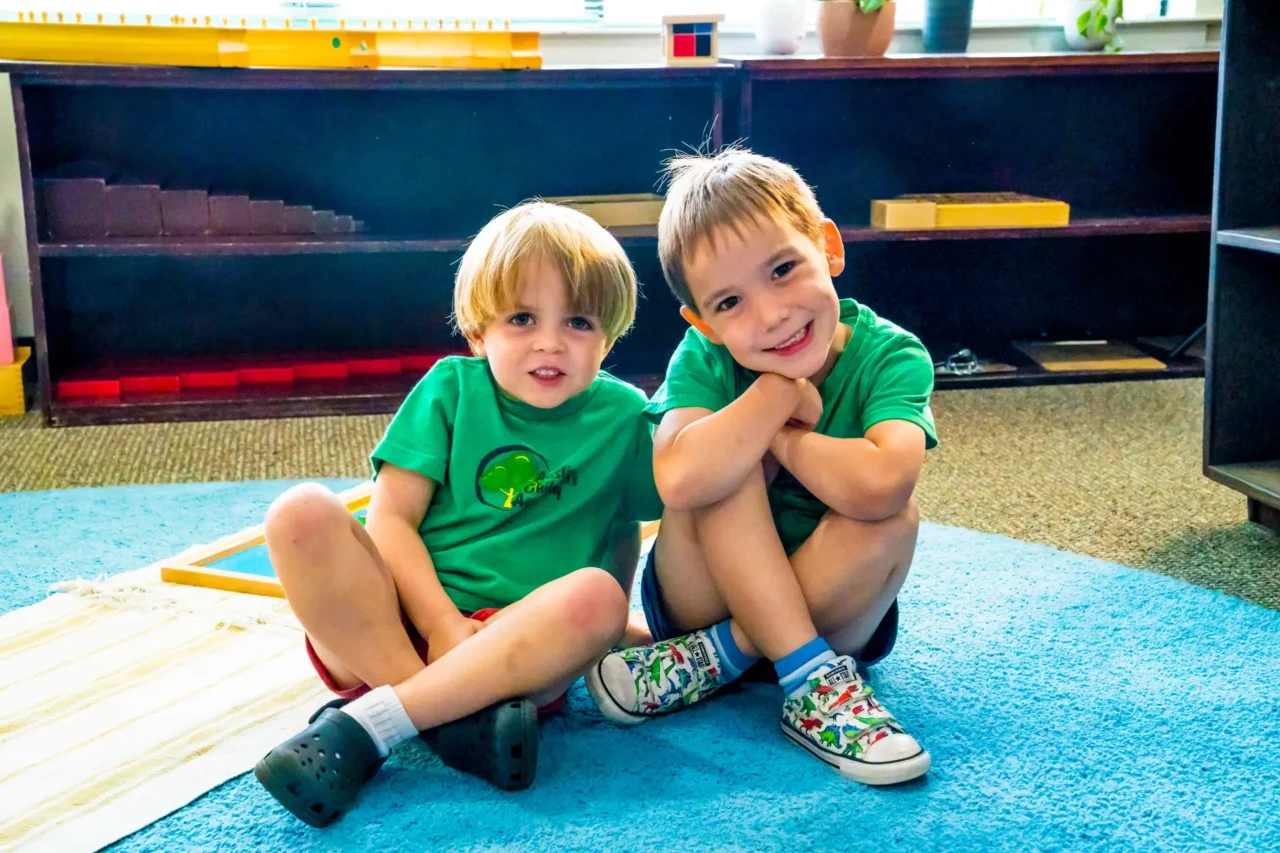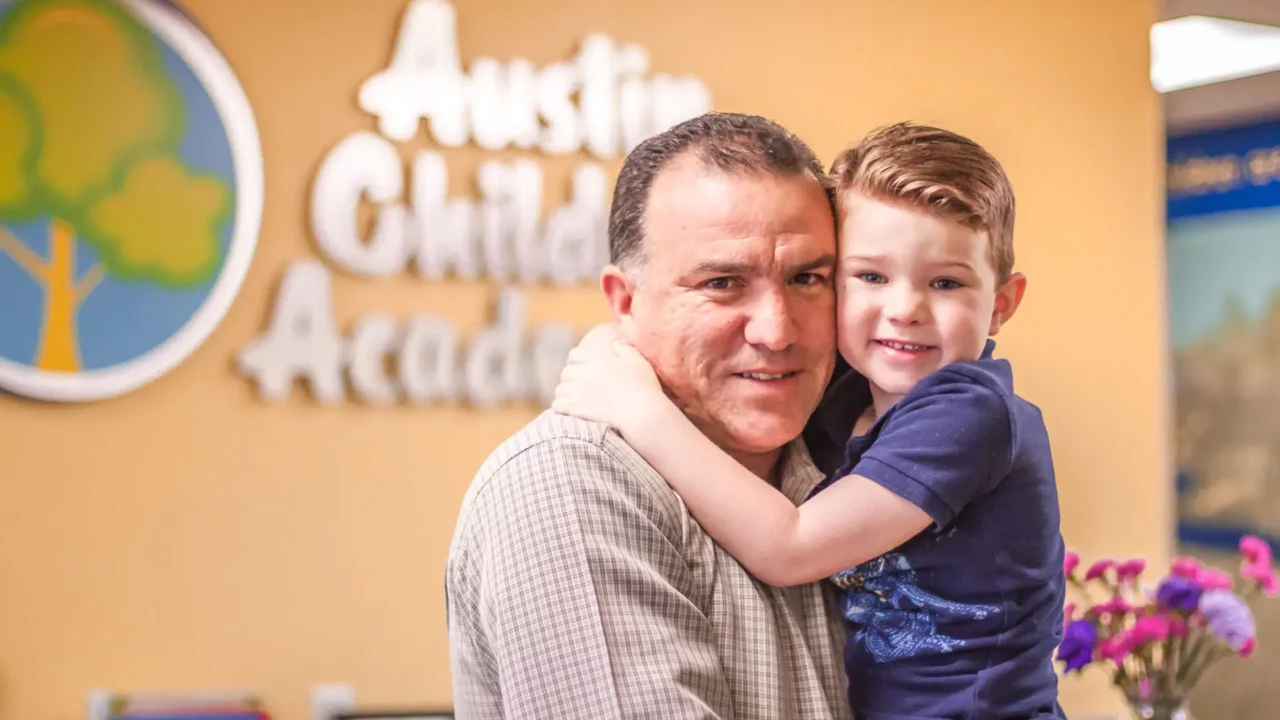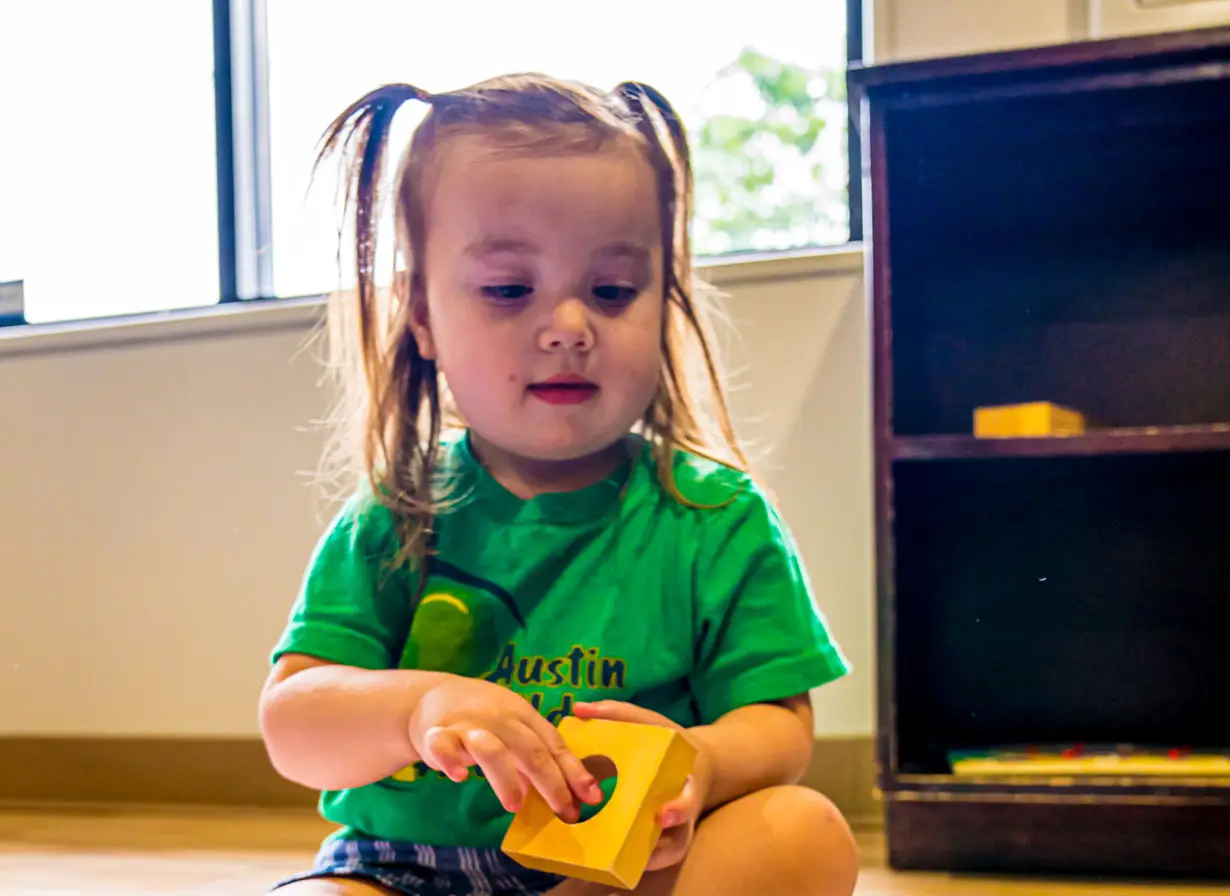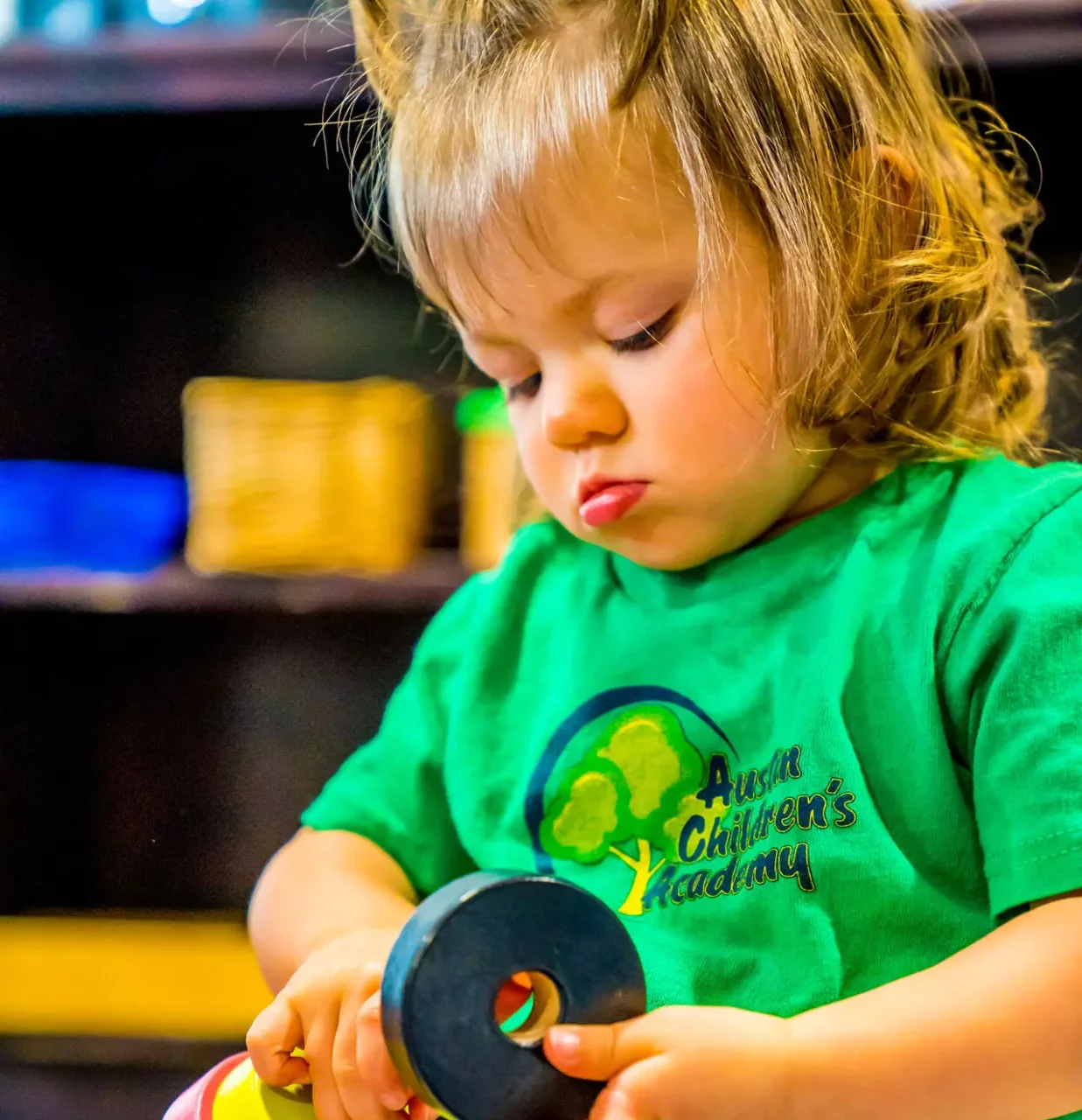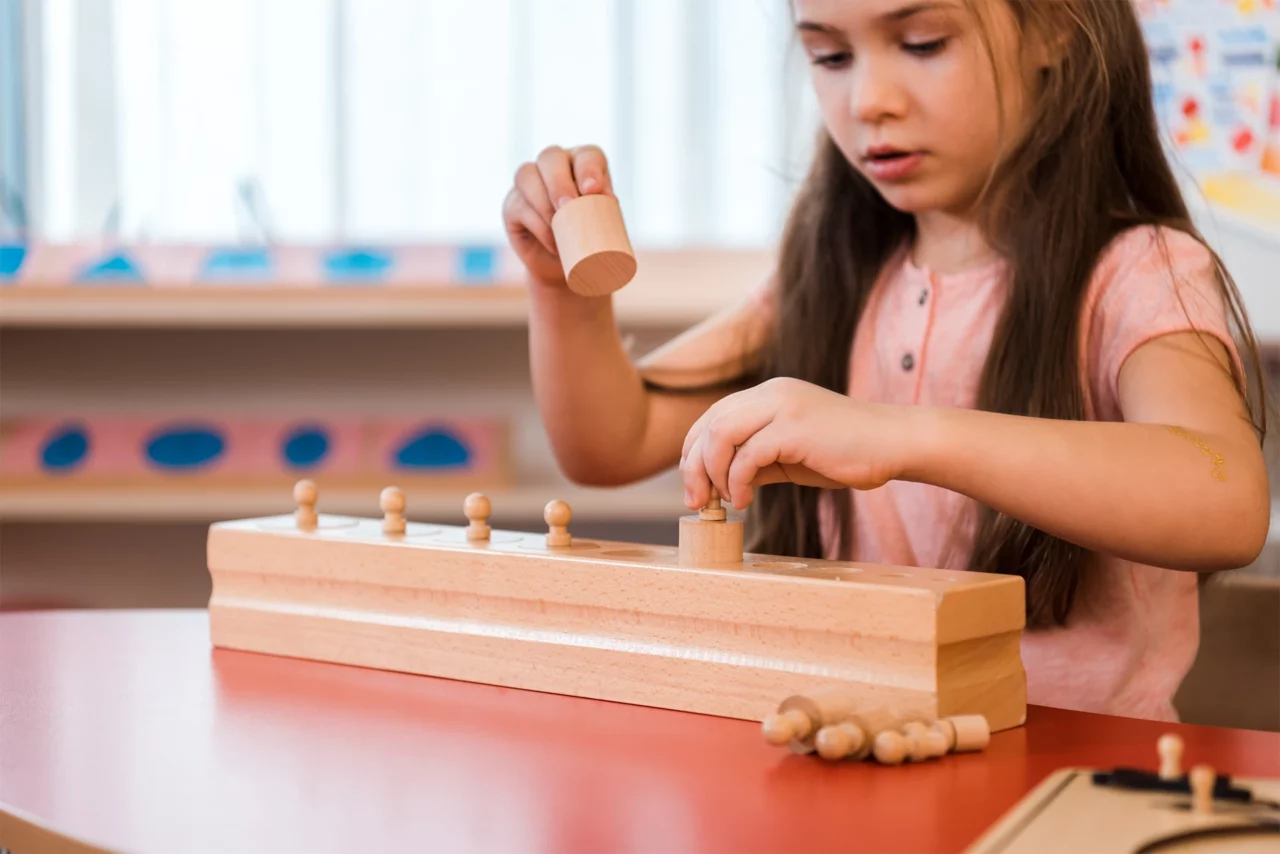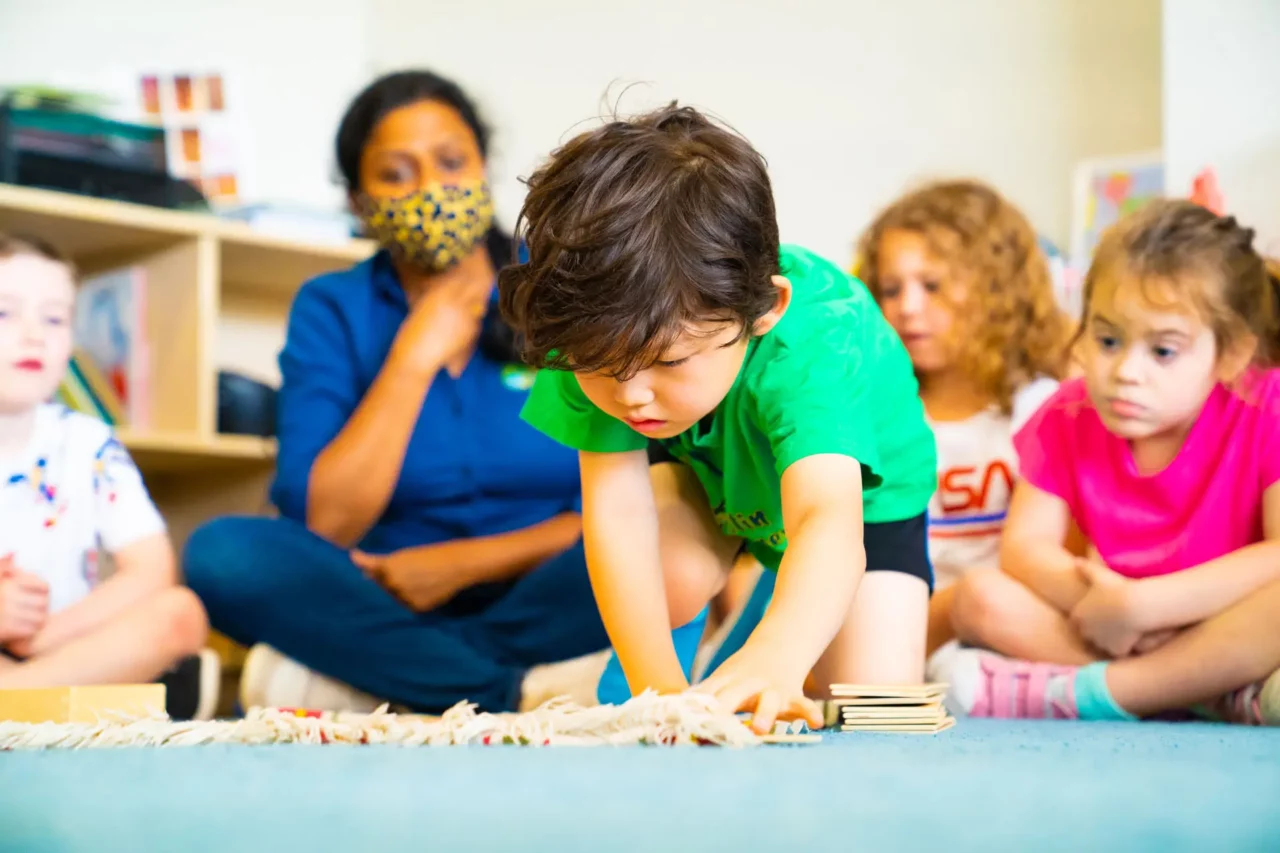Montessori Program for
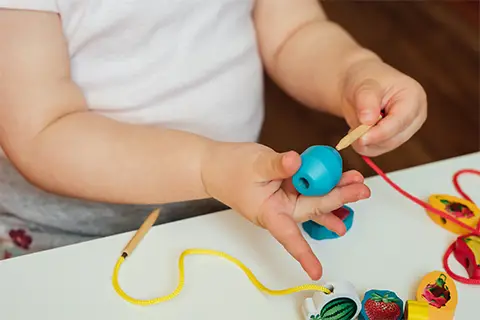
Toddler Program Overview
The toddler years are a very critical period of time in early child development. A toddler’s mind is eager and their physical and sensory curiosity is boundless. Out of the house and often out of the crib, your toddler is ready to explore the greater world, even if his still-unsteady efforts give you palpitations!
Since experimentation and play are how toddlers absorb new cognitive, physical, and sensory lessons, you want to make sure they are able to learn those lessons in safety and with joy.
Developmental Milestones
During the years your child spends in our wonderful Toddler Program, your child will mature in swift and wonderful ways:
- Language: By the age of three, toddlers will have gained a vast understanding of hundreds of words, speak many of them, and be able to ask questions, use less baby talk, and sing rhyming songs.
- Large Motor Skills: By three years of age, children can kick a ball, balance on one foot, start pedaling a tricycle, and walk up stairs.
- Small Motor Skills: By the age of three, toddlers will have learned to work door handles, buttons, bottle tops, and be able to draw shapes and even letters with a pencil, crayon, or marker.
- Independence: Children will demand more independence and begin self-care such as dressing themselves and using the potty
- Social Skills: They will be learning the basics of sharing, taking turns, feeling empathy, and cooperative play.
Toddler Program Details
Ages
18 months — 3 years
Program Hours
Half-Day: 8:30am – 12:30pm
Full-Day: 8:30am – 3:30pm
Extended-Day: 7:30am – 6:00pm
Class Size
12 students, 2 teachers
Nap Schedule
All students will have supervised nap periods that allow them to maintain their own sleeping pattern.
Toddler Classroom Design
Feeding your toddler’s desire for learning is one of the primary goals of our Toddler Program. We design our dedicated classrooms specifically for the active, not-yet-steady toddler so that they can explore freely and without worry.
We supply toys and learning materials brilliantly designed to engage their interest and use their capacity for play in order to learn the concepts that will move them forward in cognitive, physical, sensory, or academic development.
Practical Life Learning
Practical Life activities in a Montessori toddler classroom develop care for the environment and encourage motor skills, social skills, and self confidence. With this kind of confidence, children are eager to begin to problem solve in many different situations, which is a key academic and life skill they need as they grow older.
A few examples of practical life work are washing hands, toilet training, brushing teeth, washing a baby doll, pouring liquids, manners training, dressing and buttoning skills, and more.
Other Curricula
In addition to Practical Life Skills and developmental milestones, our Toddler Program includes curricula in Language and Reading, Sensorial, Mathematics, and Culture Studies areas:
- Language and Reading: Pre-writing and pre-reading skills based on the phonics method. Teachers use songs, movement, direct instruction and one-on-one time to help them gain understanding in the language and reading category.
- Sensorial: Specially designed Montessori materials help children distinguish, categorize, and compare different heights, lengths, weights, colors, shapes, sounds, temperatures, and textures.
- Mathematics: Rods, beads, cubes, and stairs are common in the Montessori classroom. Screen time is kept to a minimum, but computer labs, audio systems, and television and DVD viewers are available for use when appropriate.
- Culture Studies: Children learn country names, flags, maps, and holiday celebrations from all around the world through songs, dance, food, art, books, and pictures.
Explore More About Us
Contact Our Admissions Team

Have more questions? We’re here to help!
